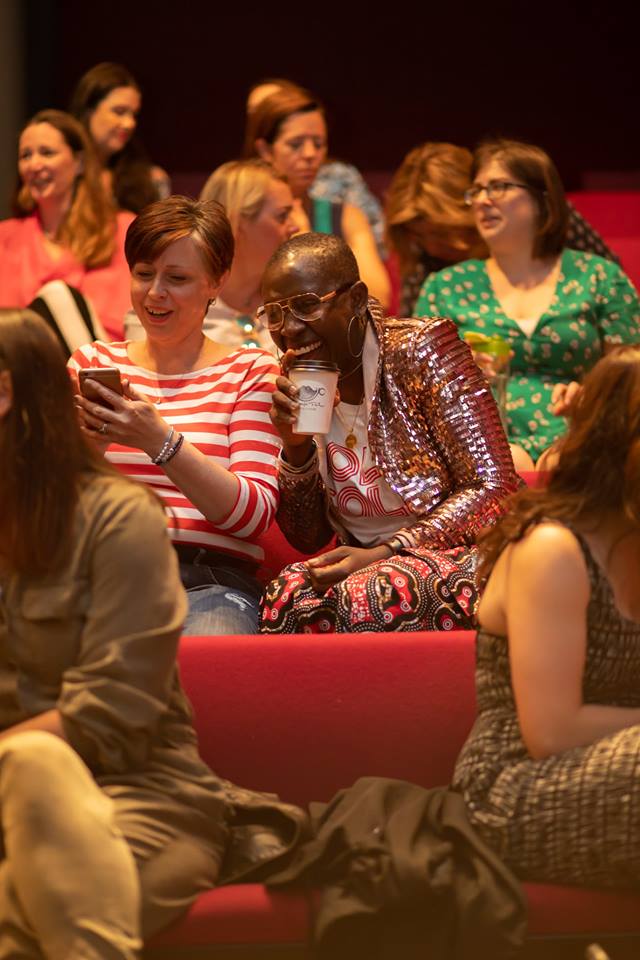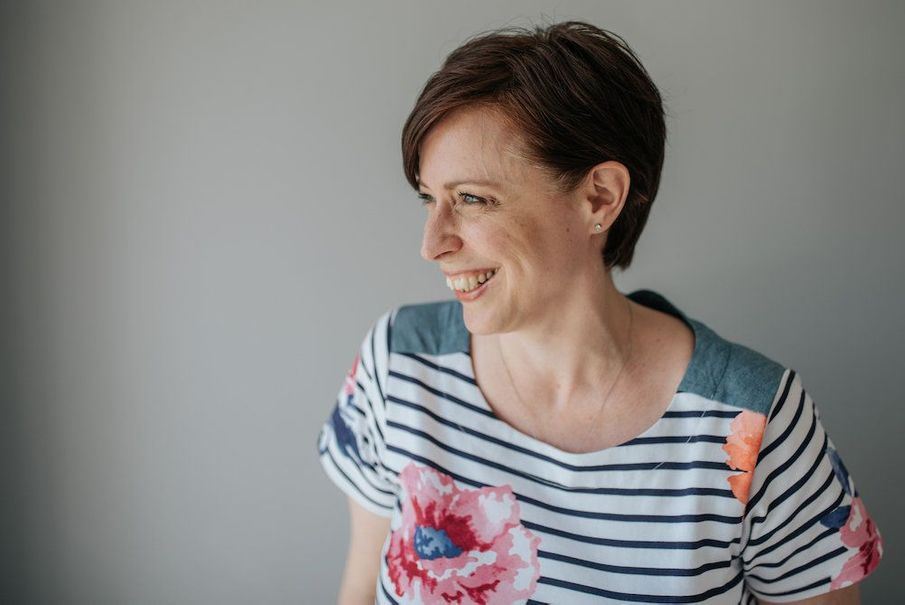Lauren thought her daily ‘wine o’clock’ drinking was harmless, until she realised it had become a dangerous habit that threatened to ruin her life. After 13 years, she finally found the strength to ditch the booze, and now she feels better than ever
I woke up with the familiar sense of shame that followed a night of heavy drinking. Which was, in fact, pretty much every night.
My disappointment in myself hit around the same time as the shame, and reminded me of how I’d vowed that I wouldn’t do it again, or only do it midweek, or only do it in the house, or only do it when I was alone. It wasn’t uncommon, in fact it was pretty predictable that I would do all the above, over and over again.
The headache and nausea once again driving my promise that I was going to give up the booze for good this time, while desperately trying to push away my very repetitive internal monologue of ‘but you’ve tried and failed so many times, what’s the point?’
I was laying in bed, pretending to still be asleep, listening to my family downstairs. I couldn’t face joining them, knowing that I had a day full of mumming; a day where I would have to hide my hangover and pretend I wasn’t carrying the burden of guilt and embarrassment from another night of public drunkenness.
I shuddered when I thought back to the desperate attempts to not slur my words, trying to maintain eye contact so I that I could pass off as looking interested in a conversation that I wasn’t even listening to – I was too busy trying to stay upright. Had it been glaringly obvious that I was drunk? For those close to me, was it glaringly obvious that I was becoming a drunk?

It had been my niece’s 21st birthday, and we were having a family meal. As the night went on, I got drunker and drunker. I was celebrating (not that I needed an excuse to drink, but it did justify it). Whenever I got drunk, I would go overboard trying to look sober. The problem with that was a drunk acting sober is more obvious than a drunk not acting at all.
I had started drinking in my teens, but didn’t everyone? It was just at parties, clubs and social gatherings, but not an everyday occurrence, not something that I needed.
And then 15 years ago, I had my third child. I had found motherhood really hard since having my first; it didn’t come naturally to me, so by the time we had our third (with the promise that I’d be better at it this time), I fell apart. I felt so trapped by motherhood and the responsibility it brought.
I don’t consider my hatred for motherhood and my love for my children the same. The problem was, you can’t have one without the other. Me having children that I loved more than life meant I had to also have the motherhood. I began drinking as a way to ‘loosen up’, to shed the ‘mum’ tag for a few hours a day.
From the birth of my daughter onwards, my drinking became more regular. By the time she was six months old, I would be drinking a bottle of wine a night, feeling carefree for just a few hours. Wine had become my ‘go-to’ happy place; wine had become my addiction.
My daughter was a year old when I told my husband that our marriage was over. This was driven by a need to reclaim myself outside of marriage and motherhood, my need to escape. Looking back now, I’m sure the wine, which is a depressant, also played a part.
I split up with my husband and we agreed to share the kids half the week each. The times my kids were with their dad were the times when alcohol really took over. I didn’t want to do life without my kids (can’t live with them, can’t live without them), and so when I was without them, I drank, a lot. I drank until I couldn’t feel their absence anymore. I drank until I fell asleep so that I wouldn’t have to feel the emptiness of the house. I drank until I was in a warm, safe place where real life wasn’t real.
I drank until I was in a warm, safe place where real life wasn’t real
I got remarried to a man who also loved to drink. I loved this; it made me feel less guilty, it made it seem acceptable to be drunk every night. He was a high-functioning alcoholic, and I matched him drink for drink. I too became a high-functioning alcoholic – we both had good jobs, you couldn’t pick us out on a line up; we weren’t the picture of the stereotypical alcoholic.
Before too long, the relationship had deteriorated, and after four years together, we split up.
I was once again back on my own, but my ever faithful and dependable booze was by my side. I felt it was manageable; until eight years later, and now being married (again) to a man who doesn’t drink, I realised that my habit had gone on for 13 years, and was actually having a negative impact on my life.
I was permanently exhausted, my relationship felt like an uphill struggle, and sex was pretty much non-existent. I even noticed that I was seeking negatives in my day just so that I could justify having a drink in the evening. ‘I deserve this’ rolled off my tongue a little too easily.
It was finally time to stop. I had tried so many times, but this time I meant it. Was my daily reward worth more than me feeling in control, strong, positive, and sober?
I decided that the only way I could crack it was to really give it my all, and make myself accountable. I had to say it all out loud to myself: ‘I am drinking too much’, ‘I need to drink daily’, and the one that nobody ever really wants to admit, ‘I am slowly killing myself’.
That day I signed up for Dry January, telling myself I could just do it for a month. I shared my donation link everywhere I could, knowing that once it was out there, I had to go through with it.

Lauren Derrett
I made a pact with myself that the 30 days was non-negotiable, but that I could review it again on 1 February. The idea of never drinking again was too much, I was going to have to take this slowly, one step at a time.
My friend sent me a book called The Sober Mummy Diaries, which introduced me to its writer, Clare Pooley, and a whole world of incredible sober women that I never knew existed. To justify my drinking, I had sought out others who shared the same pattern, and tried to reassure myself that everyone was doing it. Except not everyone was doing it; there was a whole movement of women who have, and are choosing to live, sober lives.
I surrounded myself online with these women. I felt I needed safety in numbers, I felt I still needed to feel part of something cool, I needed to replace my tribe. I searched the hashtag #sober on Instagram, and hit follow on accounts of women who had turned their back on the booze, and were loving life. I found Love Sober, a podcast of two women who knew exactly what it was I was going through.
I learnt loads about the health risks of daily drinking which, although it was a really tough read, proved to be quite a wakeup call. It was definitely time that I faced the facts, head on.
With this new world, where sobriety was equally cool and equally accepted, I felt ready to quit the booze for good. I’ve now been sober for more than 150 days and have never felt better. I’m far less negative (I no longer look for reasons to start drinking at the end of the day), I have far more energy, and my relationship is so much better. I feel free.
It’s hard knowing I’ll never enjoy a drink again, but the feeling of being in control, the rise I’ve seen in my energy, the freedom from the guilt I carried, all the money that isn’t going to waste, the impact on my health, and living my life with full clarity, are worth the trade-off.
Graeme Orr | Counselling Directory member and MBACP (Accred) UKRCP Reg Ind counsellor, says:
Motherhood was a difficult transition for Lauren and she started using alcohol to cope with her feelings. Her marriage was a casualty, and although she met someone new, she used alcohol to manage her emotional state.
She knew something needed to change, but struggled until she found her online tribe; mums who had become sober and felt that life could be positive without alcohol. Often deciding on the change and starting small is the key, and as Lauren found, having a supportive community really helps.
To discover more about alcohol addiction, visit Counselling Directory or find a counsellor near you using the search box below.


Comments